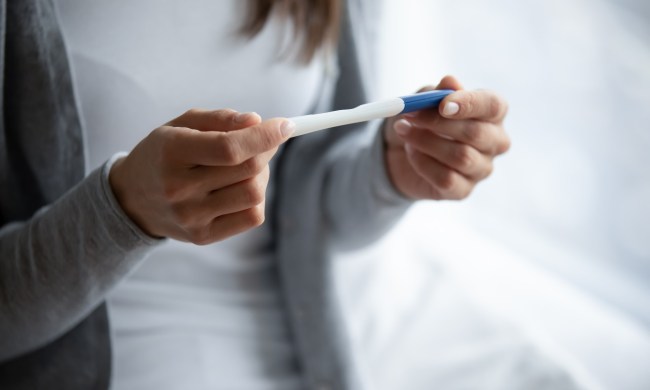Morning sickness, missing your period, weepiness. You might be most familiar with these early pregnancy symptoms as classic signs that you’re expecting. But what about the symptoms that no one has ever told you about? You might be amazed at how many physical changes occur within the earliest days of pregnancy that often go undetected. Some of these changes might even mimic the first few days of your menstrual cycle, which can throw anyone off. Other symptoms are not always associated with pregnancy, but they tell you that you’re expecting. Therefore, we’ve done our homework to bring you the six signs of early pregnancy that you don’t often hear about.

How early in pregnancy does discharge start?
Within the first week of pregnancy, you might notice some discharge. However, some women never experience this early symptom, while others might notice it immediately. It usually starts within the first seven days after conception even before you’ve noticed a missed period. Since the disruption of the menstrual cycle is usually the prime symptom that clues you in, this symptom might also help you to estimate a due date; whereas the first day of the skipped period is usually the marker from which obstetricians start counting.
What does very early pregnancy discharge look like?
For some women, this early pregnancy discharge is a spot of blood. For others, the discharge is light pink or even dark brown. Furthermore, the duration of this occurrence varies. In some cases, it happens for just a few hours, and in others, it can last for days.
Another confusing aspect about this early pregnancy discharge is that it’s sometimes accompanied by sharp or mild cramping which makes it almost resemble a light period. So, if you’re not aware of this, you might not think any alteration has occurred with your monthly cycle. However, what you’ve just experienced is the implantation of the embryo to the uterine wall.

Other early pregnancy symptoms to watch for
Along with early pregnancy discharge and cramping, you can watch out for the following tell-tale signs. Because some symptoms closely resemble other conditions, you will still need to wait until after the first day of missing your period to take a home test or contact your doctor with questions.
Gas or bloating
One symptom that some women might not discuss in public is the increase in flatulence. Okay, most people, in general, would not bring this up in everyday conversation. However, if you’re feeling bloated or “gassy” more often, then you might be pregnant. This flatulence is caused by the increase in estrogen and progesterone which brings on abdominal swelling for some women.
Metallic taste in your mouth
While this symptom is associated with many other conditions, an odd metallic taste has been known to occur in some women during early pregnancy. You can blame the estrogen surge for this symptom, and the best way to offset it is to eat or drink something that’s sour or rinse your mouth with a mixture of salt or baking soda and water. The good news is that this symptom dissipates during the second trimester.
Breast changes
You may have also heard of breast swelling as being a sign of pregnancy. However, some women have reported a darkening in the areola or blue veins that are clearly visible just under the skin. Others have noted a “tingling” in the breasts in early pregnancy. Although milk production won’t start until after the baby is born, your hormones are working overtime to prepare your body, which explains this change.
Having to go more often
If you’re having to urinate more often than usual on top of having “odd” discharge and cramping that can be easily mistaken for a period, you might think this occurrence is a symptom of a UTI. On the other hand, frequent urination is a sign of early pregnancy that occurs because the kidneys are working more efficiently than usual due to increased blood production and circulation.
Constipation
While you’re having to urinate more often, at the same time, you may experience constipation. It’s easy to brush off this symptom as a signal to start incorporating more fiber into your diet or drinking more water — two habits that coincidentally would make pregnancy go more smoothly. However, what’s really happening in your digestive system is a noticeable slow-down because of hormone changes.
Overall, the fast increase in hormone levels brought on by fertilization and then, implantation bring about huge changes in the body, though they may seem quite subtle at first. Regardless of the timing on the calendar, you might discuss these symptoms with your doctor as previously mentioned. Who knows? Perhaps, you can expect some exciting news.



